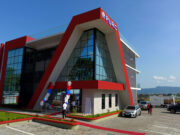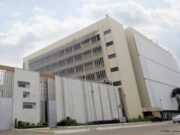Former Minister for Education, Dr. Yaw Osei Adutwum, has reiterated the significance of STEM (Science, Technology, Engineering, and Mathematics) education in driving Ghana’s economic and industrial transformation. Speaking on JoyNews’ AM Show, Dr. Adutwum emphasized that aligning education with national development is crucial for meaningful progress.
“The biggest challenge facing education in Ghana when I took over was the lack of connection between education and national transformation,” he stated. According to him, an education system that does not contribute to the transformation of a country is ineffective.
He emphasized, “When the education system is not relevant to the socio-economic transformation of your country, it’s education to nowhere.” Dr. Adutwum cited his inspiration from China’s approach to industrialization, referencing former Chinese leader Deng Xiaoping’s decision to prioritize STEM education by restructuring teacher training and emphasizing mathematics and science at the high school level.
He said under his tenure, Ghana took deliberate steps to enhance STEM education, recognizing its role in the Fourth Industrial Revolution. He said the emphasis on STEM was to make sure that in this 21st century, Ghana is highlighted to create a competitive economy.
“So when you hear STEM education, it’s not just children coming to school. When you see them doing robotics, we see them flying drones, we see them doing things that we’ve never done before. It’s creating the next generation workforce in the 21st century, the fourth industrial revolution, who will lead the transformation of Ghana.”
To address this, Dr. Adutwum said he spearheaded the development of a bachelor’s degree in STEM education at the University of Cape Coast. “ today I’m happy that Cape Coast has submitted, at the time I was leaving, they have submitted their curricula for training of STEM teachers to GTEC,” he disclosed.

He said two STEM colleges of education were also established during his tenure to train the next generation of STEM teachers. He equally highlighted Ghana’s strides in building STEM schools and centers across the country. He said, “with three standing, new ones that we built were about,11, at the time that I was leaving office.” He mentioned notable ones like Abomosu in the Eastern Region, Bosomtwe Girls, and STEM centers in places like Accra High.
He said these centers are equipped with all STEM equipment and software programming tools to foster practical STEM learning. Dr. Adutwum highlighted Ghana’s need to scale up its production of engineers. He said a pre-engineering program was introduced at UMAT and Pentecost University for students who did not study science in high school but are interested in engineering.
Dr. Adutwum urged for a sustained commitment to STEM education, stressing that its integration into the education system would be the foundation for Ghana’s economic transformation. “You catch them young. They get excited. So they don’t apply to medicine, and if they don’t get in, then they go to engineering.” If you get a student who is really, really excited about engineering from high school, he will become a better engineer than the person who didn’t want to do engineering. But because he didn’t get medicine, then he found himself in engineering,” he asserted.
With the national education forum set to review Ghana’s education system, stakeholders are expected to build on these initiatives to ensure that STEM education remains a core driver of the country’s development.





















